-
 Bitcoin
Bitcoin $102,949.6253
3.38% -
 Ethereum
Ethereum $2,338.4946
19.99% -
 Tether USDt
Tether USDt $0.9999
-0.02% -
 XRP
XRP $2.3968
8.64% -
 BNB
BNB $637.0250
3.78% -
 USDC
USDC $1.0000
-0.01% -
 Dogecoin
Dogecoin $0.2072
13.02% -
 Cardano
Cardano $0.7924
10.43% -
 TRON
TRON $0.2636
5.05% -
 Sui
Sui $3.9829
6.14% -
 Chainlink
Chainlink $16.2479
9.39% -
 Avalanche
Avalanche $23.5942
12.80% -
 Stellar
Stellar $0.3007
9.90% -
 Shiba Inu
Shiba Inu $0.0...01519
13.38% -
 Hedera
Hedera $0.2018
8.61% -
 Hyperliquid
Hyperliquid $25.2936
17.11% -
 Bitcoin Cash
Bitcoin Cash $414.7416
0.06% -
 Toncoin
Toncoin $3.2860
5.54% -
 UNUS SED LEO
UNUS SED LEO $8.7364
-0.74% -
 Litecoin
Litecoin $98.2278
6.74% -
 Polkadot
Polkadot $4.6909
10.44% -
 Monero
Monero $303.6835
1.99% -
 Dai
Dai $1.0000
-0.03% -
 Pepe
Pepe $0.0...01270
39.94% -
 Bitget Token
Bitget Token $4.4987
3.48% -
 Pi
Pi $0.7410
19.57% -
 Ethena USDe
Ethena USDe $1.0002
-0.01% -
 Uniswap
Uniswap $6.3515
21.66% -
 Bittensor
Bittensor $430.2143
7.45% -
 Aptos
Aptos $5.6979
11.74%
What is the blockchain technology of Cosmos (ATOM) currency?
Cosmos's Tendermint consensus mechanism provides high performance, fault tolerance, and scalability, enabling efficient inter-blockchain communication and data exchange within a decentralized ecosystem.
Dec 09, 2024 at 01:26 am
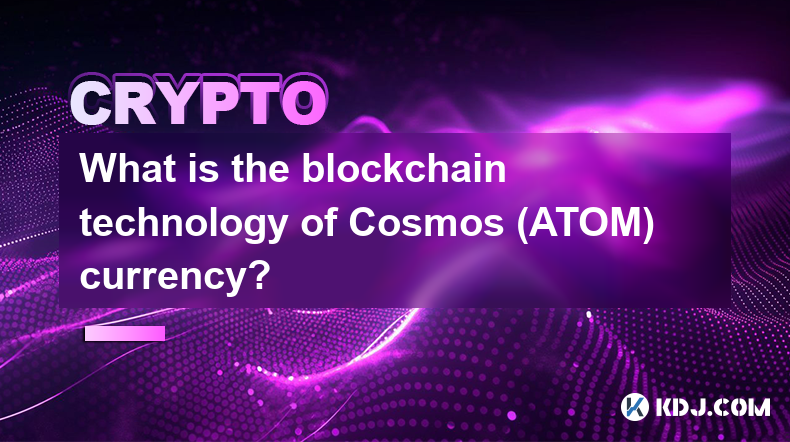
What is the Blockchain Technology of Cosmos (ATOM) Currency?
Introduction
Cosmos (ATOM) is a decentralized network that connects multiple independent blockchains, enabling seamless interoperability and communication between them. Its unique architecture solves the shortcomings of isolated blockchain networks, allowing for a cross-chain ecosystem where assets and data can be easily exchanged.
Blockchain Technology of Cosmos
The Cosmos blockchain is powered by the Tendermint consensus mechanism, which provides:
- High Performance: Tendermint enables fast and scalable block finality, ensuring efficient transaction processing.
- Byzantine Fault Tolerance: It tolerates malicious or faulty nodes, guaranteeing network resilience and security.
- Scalability: The network can handle high transaction volumes without compromising its performance.
Components of the Cosmos Ecosystem
- Cosmos Hub: The central blockchain that connects all other interoperable blockchains.
- Zones: Independent blockchains that can specialize in specific applications or use cases.
- Inter-Blockchain Communication (IBC): A protocol that facilitates message and data exchange between zones.
- ATOM Token: The native currency of Cosmos used for staking, governance, and transaction fees.
Key Features of Cosmos Blockchain Technology
- Interoperability: Cosmos enables the integration of heterogeneous blockchains, creating a truly interoperable ecosystem.
- Scalability: The Tendermint consensus mechanism and IBC allow for high transaction throughput and network expansion.
- Modularity: Cosmos's modular design enables the creation of customized blockchains tailored to specific needs.
- Community-driven: Cosmos is governed by an active community that actively participates in its development and governance.
- Developer friendliness: Cosmos provides a comprehensive set of tools and resources for developers to build and deploy their own blockchains.
Benefits of Cosmos Technology
- Enhanced Interoperability: Facilitates the seamless transfer of assets and data across different blockchains, broadening their functionality.
- Scalability and Performance: Reduces congestion and improves transaction processing speed through its efficient consensus mechanism.
- Customization and Extensibility: Allows for the creation of niche applications and blockchains that cater to specific use cases.
- Increased Security: Integrates cross-chain security measures to enhance resilience against hacks and vulnerabilities.
- Community Engagement: Fosters collaboration and innovation through community governance and participation.
Examples of Cosmos-based Blockchains
- Akash Network: A decentralized cloud computing marketplace.
- Band Protocol: A decentralized data oracle platform.
- Osmosis: A decentralized exchange for Cosmos-based assets.
- Sentinel: A blockchain-powered incident response and security monitoring platform.
- Terra: A stablecoin ecosystem that maintains price stability through algorithmically adjusting supply and demand.
Disclaimer:info@kdj.com
The information provided is not trading advice. kdj.com does not assume any responsibility for any investments made based on the information provided in this article. Cryptocurrencies are highly volatile and it is highly recommended that you invest with caution after thorough research!
If you believe that the content used on this website infringes your copyright, please contact us immediately (info@kdj.com) and we will delete it promptly.
- Rumble to Launch Bitcoin and Stablecoin Wallet in Q3 2025
- 2025-05-09 20:10:12
- Bitcoin Solaris (BTC-S) Offers Hard-Capped Digital Scarcity and Modernized Bitcoin (BTC) Functionality
- 2025-05-09 20:10:12
- Still Worth Buying Kaspa? KAS Price Outperformed by Meme Coins
- 2025-05-09 20:05:23
- Ethena [ENA] Has Been Trading Within a Descending Channel Since March
- 2025-05-09 20:05:23
- Bitcoin (BTC) Reclaims $100,000 as Spot ETFs Log Continued Inflows
- 2025-05-09 20:05:22
- Bitcoin price extends its rally, pushing past the $100000 mark to reach nearly $104000
- 2025-05-09 20:05:22
Related knowledge
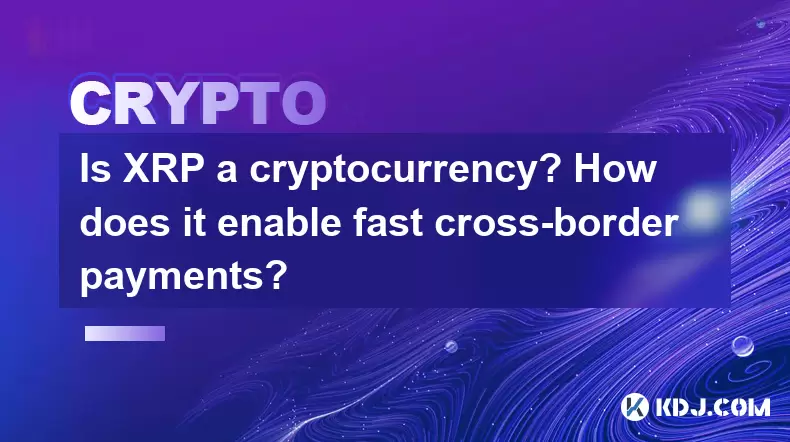
Is XRP a cryptocurrency? How does it enable fast cross-border payments?
May 09,2025 at 04:21pm
Is XRP a cryptocurrency? How does it enable fast cross-border payments? XRP is indeed a cryptocurrency, and it plays a significant role in facilitating fast cross-border payments. Created by Ripple Labs, XRP is designed to serve as a bridge currency in international transactions, enabling quick and cost-effective transfers between different currencies. ...
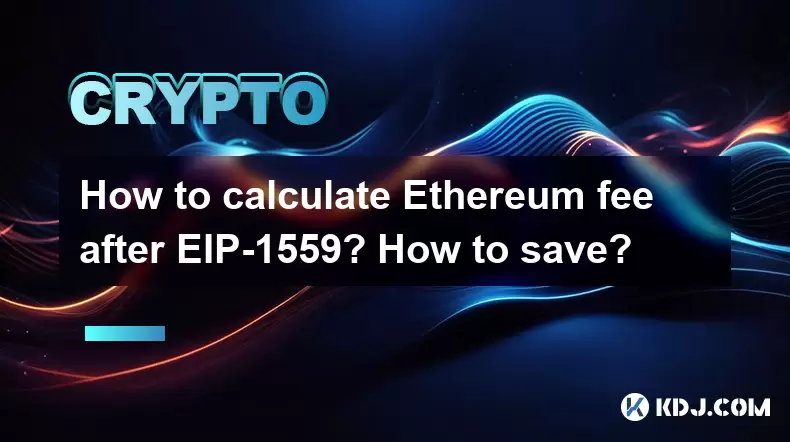
How to calculate Ethereum fee after EIP-1559? How to save?
May 09,2025 at 08:01am
The introduction of EIP-1559 in August 2021 brought significant changes to the Ethereum network's fee structure, revolutionizing how users interact with transaction costs. This article will delve into the specifics of how to calculate Ethereum fees post-EIP-1559 and offer strategies to save on these fees. Understanding EIP-1559 and its ComponentsEIP-155...
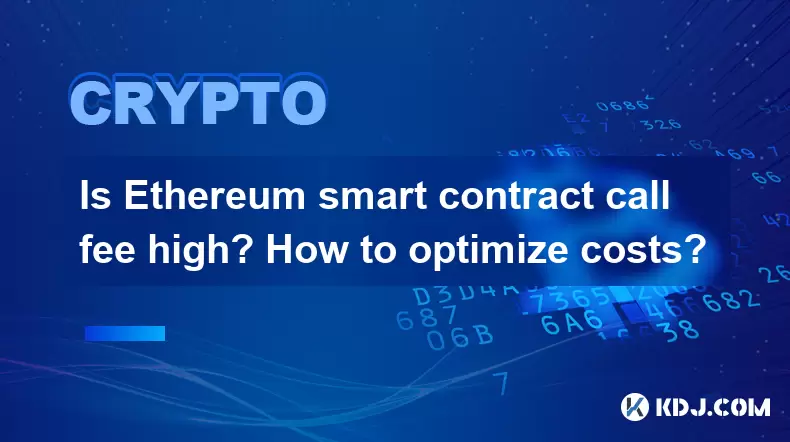
Is Ethereum smart contract call fee high? How to optimize costs?
May 08,2025 at 09:35am
Is Ethereum Smart Contract Call Fee High? How to Optimize Costs? The world of Ethereum smart contracts has revolutionized the way we think about decentralized applications and blockchain technology. However, one of the most frequently discussed topics within this realm is the cost associated with executing smart contract calls. In this article, we will ...
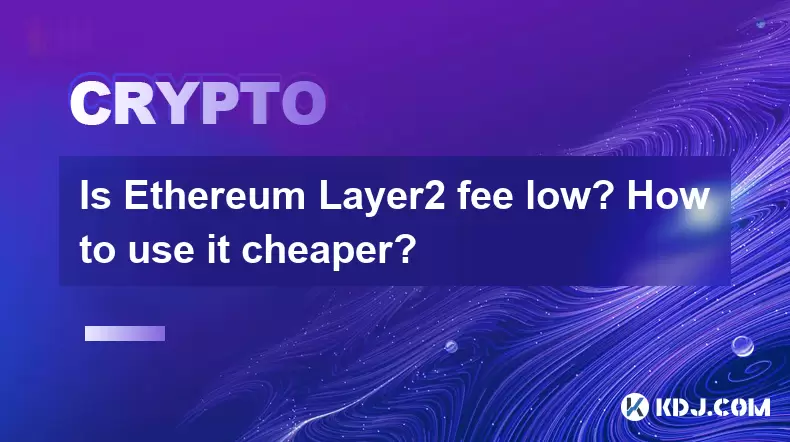
Is Ethereum Layer2 fee low? How to use it cheaper?
May 08,2025 at 03:56am
The question of whether Ethereum Layer 2 solutions offer lower fees and how to use them more economically is a topic of great interest within the cryptocurrency community. Ethereum's Layer 2 solutions have been developed to address the high transaction fees and scalability issues associated with the main Ethereum network. In this article, we will delve ...

How to calculate Ethereum network fee? How to reduce transaction costs?
May 08,2025 at 02:15am
Understanding and managing Ethereum network fees is crucial for anyone involved in transactions on the Ethereum blockchain. The network fee, also known as gas fee, is the amount of Ether (ETH) required to successfully conduct a transaction or execute a smart contract on the Ethereum network. Calculating these fees and finding ways to reduce them can sig...
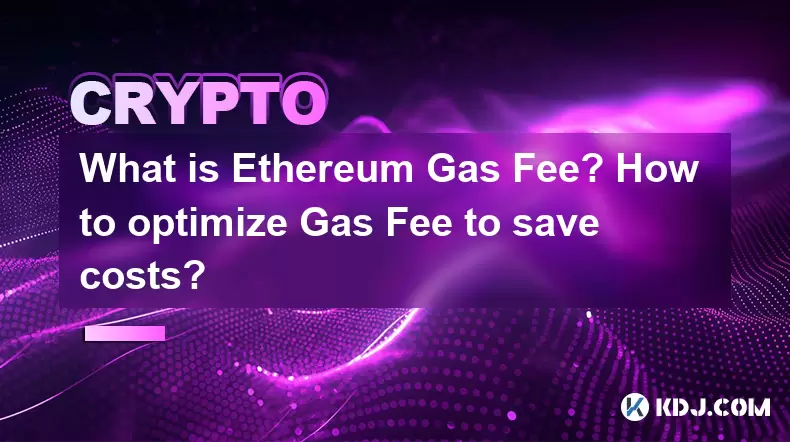
What is Ethereum Gas Fee? How to optimize Gas Fee to save costs?
May 08,2025 at 03:43am
Ethereum gas fees are a crucial aspect of interacting with the Ethereum blockchain. Understanding and optimizing these fees can significantly impact the cost-effectiveness of transactions and smart contract interactions. In this article, we will delve into what Ethereum gas fees are, how they are calculated, and provide detailed strategies for optimizin...

Is XRP a cryptocurrency? How does it enable fast cross-border payments?
May 09,2025 at 04:21pm
Is XRP a cryptocurrency? How does it enable fast cross-border payments? XRP is indeed a cryptocurrency, and it plays a significant role in facilitating fast cross-border payments. Created by Ripple Labs, XRP is designed to serve as a bridge currency in international transactions, enabling quick and cost-effective transfers between different currencies. ...

How to calculate Ethereum fee after EIP-1559? How to save?
May 09,2025 at 08:01am
The introduction of EIP-1559 in August 2021 brought significant changes to the Ethereum network's fee structure, revolutionizing how users interact with transaction costs. This article will delve into the specifics of how to calculate Ethereum fees post-EIP-1559 and offer strategies to save on these fees. Understanding EIP-1559 and its ComponentsEIP-155...

Is Ethereum smart contract call fee high? How to optimize costs?
May 08,2025 at 09:35am
Is Ethereum Smart Contract Call Fee High? How to Optimize Costs? The world of Ethereum smart contracts has revolutionized the way we think about decentralized applications and blockchain technology. However, one of the most frequently discussed topics within this realm is the cost associated with executing smart contract calls. In this article, we will ...

Is Ethereum Layer2 fee low? How to use it cheaper?
May 08,2025 at 03:56am
The question of whether Ethereum Layer 2 solutions offer lower fees and how to use them more economically is a topic of great interest within the cryptocurrency community. Ethereum's Layer 2 solutions have been developed to address the high transaction fees and scalability issues associated with the main Ethereum network. In this article, we will delve ...

How to calculate Ethereum network fee? How to reduce transaction costs?
May 08,2025 at 02:15am
Understanding and managing Ethereum network fees is crucial for anyone involved in transactions on the Ethereum blockchain. The network fee, also known as gas fee, is the amount of Ether (ETH) required to successfully conduct a transaction or execute a smart contract on the Ethereum network. Calculating these fees and finding ways to reduce them can sig...

What is Ethereum Gas Fee? How to optimize Gas Fee to save costs?
May 08,2025 at 03:43am
Ethereum gas fees are a crucial aspect of interacting with the Ethereum blockchain. Understanding and optimizing these fees can significantly impact the cost-effectiveness of transactions and smart contract interactions. In this article, we will delve into what Ethereum gas fees are, how they are calculated, and provide detailed strategies for optimizin...
See all articles





















































































